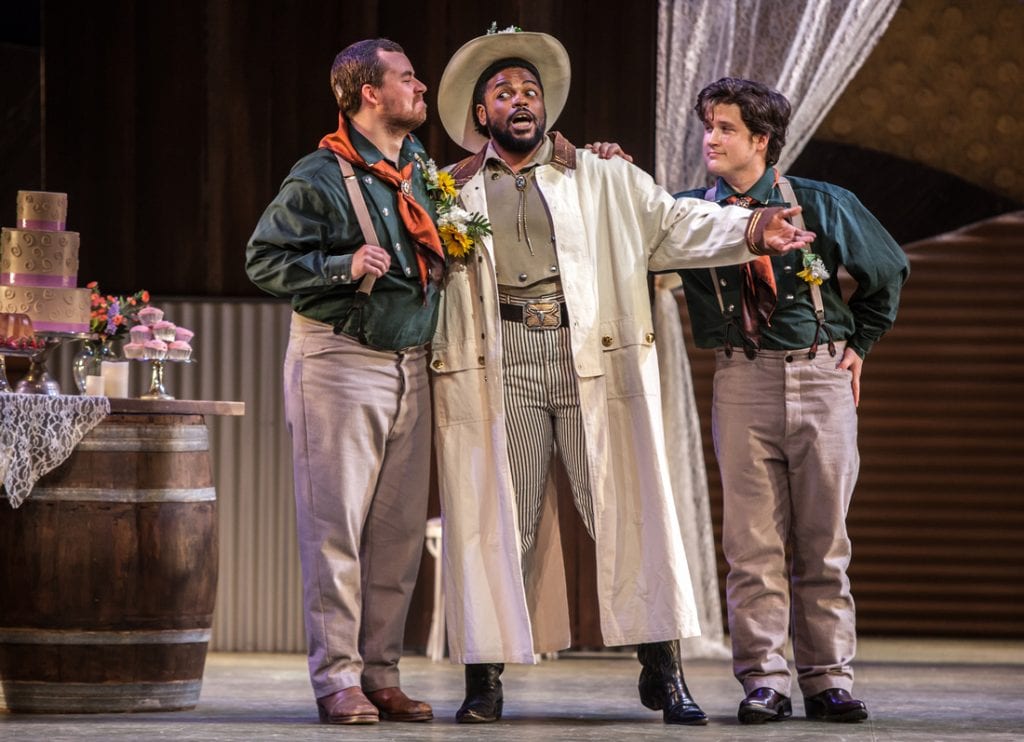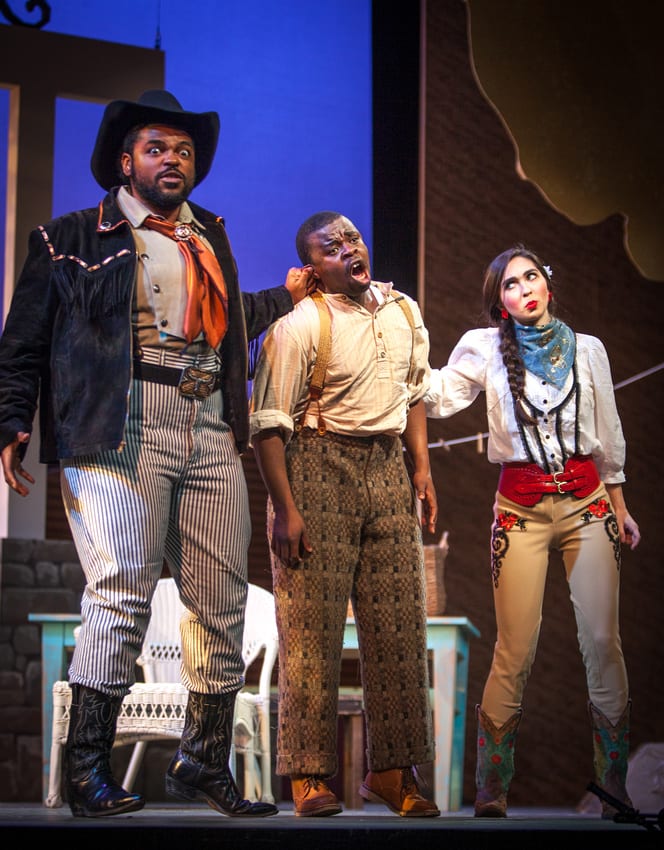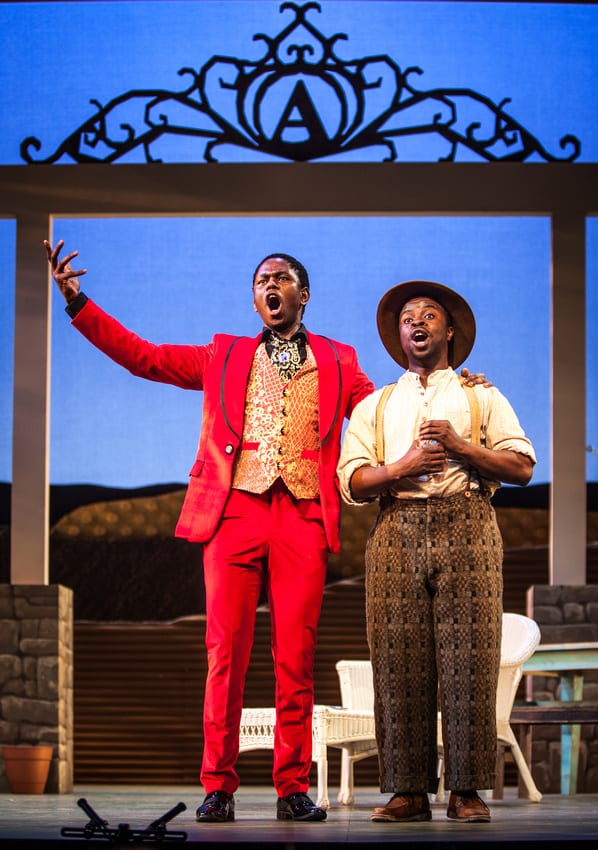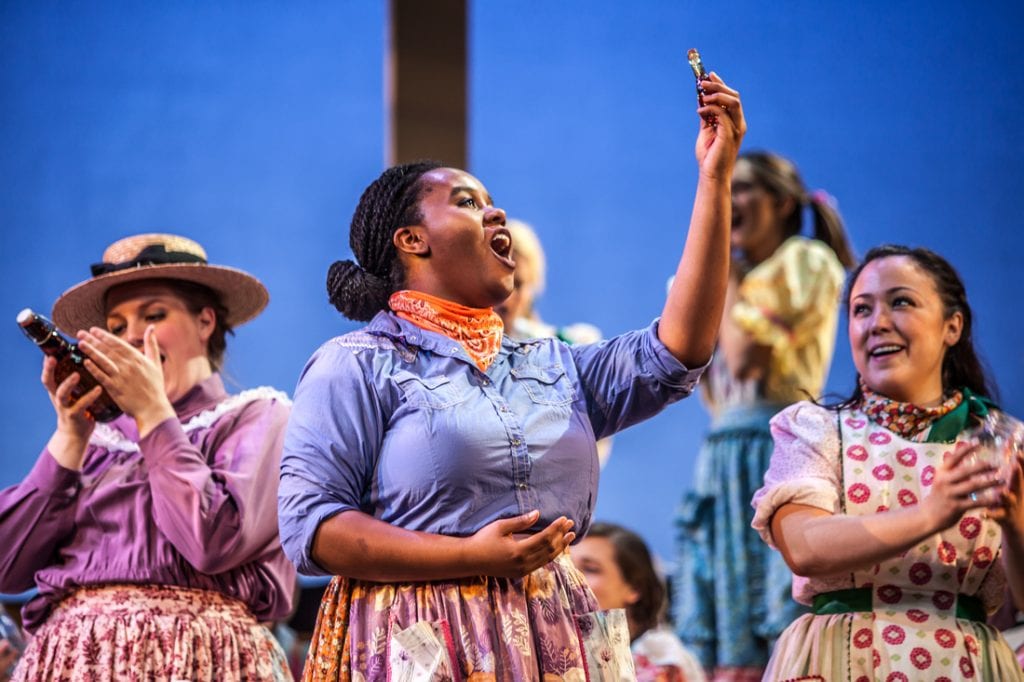
By Allison Barta
Benard Cummings is an Assistant Professor for the Meadows School of the Arts Division of Theatre. He received his B.F.A in Theatre here at Meadows in 1987. He went on to the Yale School of Drama and later moved to New York City. He starred in the film Raw Nerve in 1999 and the television series New York Undercover in 1996.
He has performed extensively in Off-Broadway productions such as “Someone Who’ll Watch Over Me” at the Actors Theatre of Louisville, and has also tried his hand at playwriting. This fall he will be directing Normalcy by Bennett Windheim, off-broadway, for Theatre East.
What brought you to SMU Meadows?
I was born and raised in East Texas. I’ve lived in NYC since the early 90s. I am also a graduate of SMU Theater. To be honest, my mom wasn’t in good health. I was spending time going back and forth from NYC to Texas for a couple of months to help in looking after her, which was absolutely no burden.
I received an email asking me if I would consider applying for the teaching position at SMU. All in the timing, I guess one could say. I applied so that it would allow me to be home for a while. Fortunately, I was offered the position. For the last 6 years, I have been able to be home, teach some great kids, work in one of the best theater departments in the country, and be near family. It has been very fortuitous, as I’ve been home for the passing of many close relatives. The old saying goes: “you are where you need to be.” After many years of working in NYC and across the country in regional theaters, it was time to be home. Time to say “goodbye” to some very close loved ones.
SMU has been remarkable. The art, if you will, has totally balanced with the family life. And I love teaching these wonderful kids selected to matriculate in our theatre department.
Do you have a favorite show you have either directed or performed in?
I love directing in academia. I’ve done so at SUNY Purchase in NY and at the NYU/Stella Adler Studio. So far, I’ve directed three shows on the main stage of SMU.
I also direct the incoming grad students in a rehearsal project in their first semester of graduate school. But the most challenging directing project was with Dallas’ African-American Repertory Theater. I was directing a production of August Wilson’s “Radio Golf” for the Elevator Series at the Dallas Theater Center in 2015. On the last day of tech rehearsals, one of the actors became very ill and had to be hospitalized. I was also slated to return home to NYC (I still have an apartment there) and begin classes at the Shakespeare Theater of New Jersey right after Opening Night. But I could not leave this production in a lurch. The cast was really strong and had been working very hard to bring this play to life. So I decided to stay and take on the role. It was the wildest experience I’ve ever had on stage. It was like walking a tight rope. But I found myself having to go from director to actor in a matter of minutes during tech. I loved every minute of that nerve-wracking experience.
How has your performance and directing career influenced your teaching career?
To quote “Hamlet,” The Play’s the thing. Everything begins with the written words on the page. I have learned over the years that careful attention must be paid to the world that has been created on that paper. As a director or actor, I am now very aware that the beginning process must be painstakingly observed. Young actors are anxious to act without having thoroughly examined the Given Circumstances of the play.
They act an idea of a scene rather than experiencing the life of the characters they are portraying. My acting and directing have taught me to teach my students to slow down, read carefully and thoroughly, and take notice of everything about the character they are portraying. They must expand on this knowledge by building the world with the information the playwright has given. Assume nothing! Act only from what is given by the playwright. Their play, the world they have created, is the thing. Without a rich understanding of a character’s world (and how they operate in it) an actor is merely behaving rather than living.
What is one piece of information you learned in School of Drama that you have carried out in your life and/or instruction?
Get to know the world of the character, make choices, and play fearlessly.
I must go to the world of the character, not bring the character to my world with all of my prejudices and hang ups. Sometimes an actor may play a role that may be considered “unsavory.” If I bring the character to my world in order to make the character less “unsavory,” I may overload him with my prejudices. Thus, I must carry myself to the world of the character and be of service to how this person lives in their world. Judgment can actually close an actor from totally enveloping a role.
What should a student signing up for one of your classes anticipate?
Let go. Give it up. Characters in the modern realism plays I teach from are not safe. The playwrights have captured them in some very dire circumstances. Their lives are large, and you must fill that life with equal largeness. I love the heightened realism of Chekhov, O’Neill, Williams, Wilson. I love characters with heightened emotional stakes, where they are desperate to live as they are surrounded by dire circumstances. I am going to inspire the actors in my class to be bold, to be brave, to be larger than the life they live, and to be fearless.










